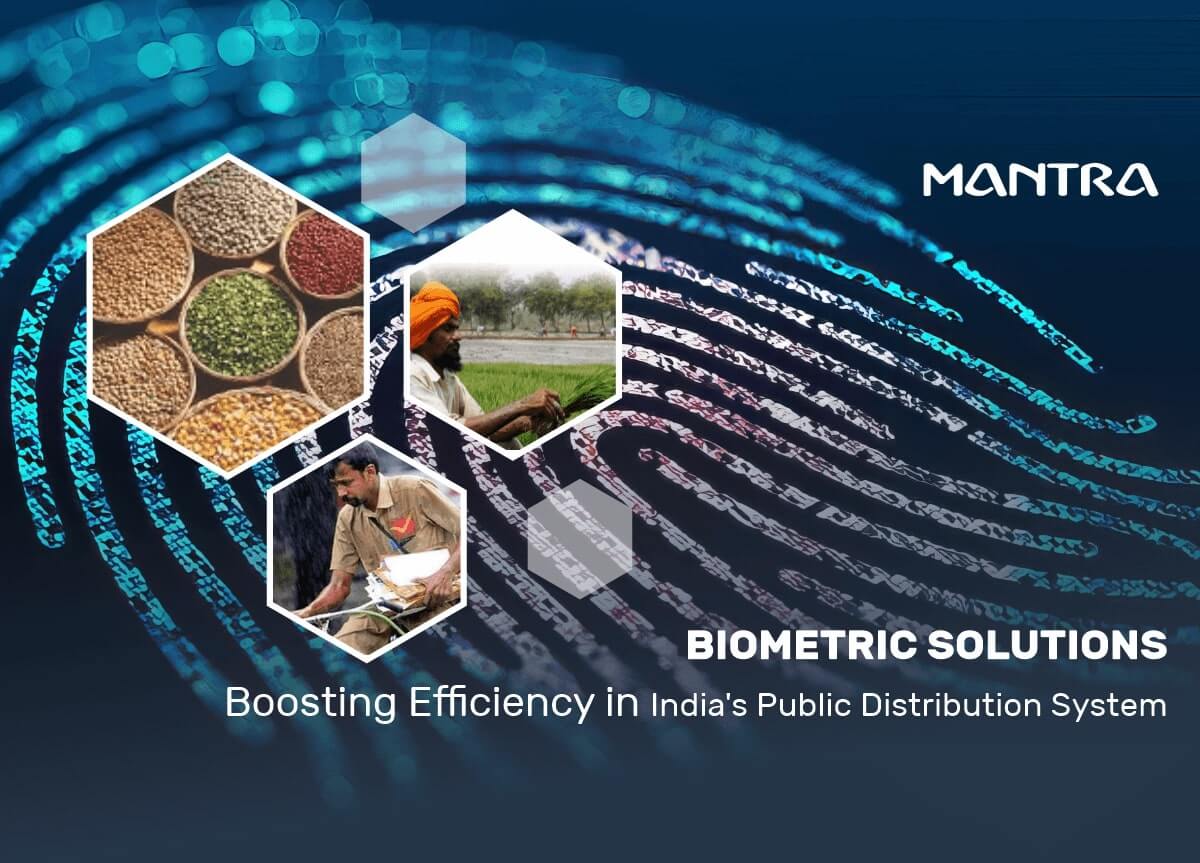
Biometric Solutions for India's Public Distribution System
India's integration of fingerprint biometrics is revolutionizing the Public Distribution System (PDS) and enhancing other citizen identification programs. This technology ensures accuracy and efficiency in the distribution of essential services.
India's Embrace of Fingerprint Biometrics
The Indian government has incorporated fingerprint biometrics into its civil registration and identification programs, drawing inspiration from global examples. This integration is crucial for the PDS, which serves over 800 million beneficiaries under the National Food Security Act, ensuring the right distribution of over 54 million tons of food grains annually.
The Indian Scenario – PDS and Beyond
In the context of India's PDS, biometric solutions address challenges like scalability, ease of use, and cost. They ensure rightful distribution to beneficiaries, thereby significantly reducing the estimated 10-15% diversion of food grains due to fraud or errors.
Why Biometrics are Crucial in Civil IDs and PDS
Fingerprint biometrics ensure each individual in India's vast population is registered once, preventing fraud and duplication in public service delivery, crucial for a system serving a diverse population across varied geographies.
The Impact of Biometric Authentication in Indian PDS
Through biometric technology, accurate beneficiary authentication in the PDS is achieved, crucial in a country where biometric data for over 1.2 billion residents are stored in the Aadhaar database, the world's largest biometric ID system.
Fingerprint Biometrics – The Preferred Choice:
Fingerprint biometrics offer:
Ease of Use: For India's large-scale campaigns like PDS, user-friendly fingerprint biometrics facilitate smooth enrollment, crucial for a system catering to a vast and varied population.
Affordability: The cost-effectiveness of solutions aligns with the government's economic viability need in large-scale deployments, especially when the PDS operates within a tight budgetary framework.
Portability and Durability: The robustness and portability of equipment are vital for field deployments in India's diverse geographical landscapes.
Interoperability: Compliance with international standards ensures seamless integration with existing systems, crucial for a country with diverse administrative setups.
Real-World Impact in India:
Fingerprint biometrics in Aadhaar have streamlined the PDS, contributing to an estimated reduction of $1 billion in fraud-related costs annually. These biometrics play a significant role in other welfare schemes, impacting millions of lives across the nation.
Mantra Softech's proud to be part of Indian government citizen identification programs based on biometric technology, especially in the PDS, which has brought efficiency and transparency to the system. With enhanced service delivery and reduced fraud, the government is better equipped to manage public services at scale, making a substantial impact on national welfare programs.
Pravin Patel
Please help me not supporting my android device mantrafma100
Reply